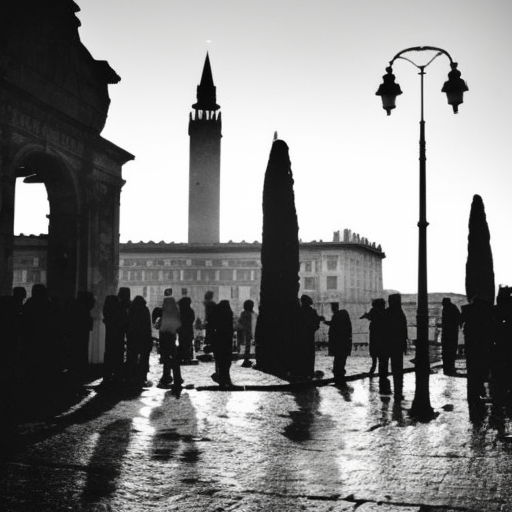Piazza della Loggia Bombing: A Tragic Act of Terrorism in Italy
The Piazza della Loggia bombing was a devastating act of terrorism that occurred on May 28, 1974, in Brescia, Italy. A powerful bomb exploded in the crowded Piazza della Loggia, a historic square in the city center, during a peaceful demonstration organized by trade unions. The explosion resulted in the deaths of eight people and injured over 100 others, leaving a lasting impact on the city and the nation.
The Bombing and its Aftermath
The bomb, estimated to contain around 15 kilograms of TNT, was hidden in a suitcase placed near the entrance of the historic Palazzo della Loggia, the seat of the local government. The explosion occurred at approximately 10:25 am, when the square was filled with people participating in the demonstration. The blast caused widespread destruction, shattering windows, damaging buildings, and leaving the square covered in debris and blood.
The immediate aftermath of the bombing was chaotic, with emergency services rushing to the scene to provide medical assistance and evacuate the injured. The injured were taken to nearby hospitals, where doctors and nurses worked tirelessly to save lives. The city of Brescia was in shock, as the bombing was an unprecedented act of violence in the region.
Investigation and Trials
The investigation into the Piazza della Loggia bombing was complex and lengthy. Initially, suspicion fell on anarchist groups, but evidence later pointed towards right-wing extremists. The investigation revealed that the bomb was likely planted by members of the neo-fascist organization Ordine Nuovo, a far-right group active during that time.
Several individuals were arrested and put on trial for their involvement in the bombing. Among them were members of Ordine Nuovo, including Carlo Maria Maggi, Franco Freda, and Giovanni Ventura. The trials were highly controversial, marked by political tensions and allegations of cover-ups. Despite the evidence against them, many of the accused were acquitted due to lack of conclusive proof or procedural errors.
Legacy and Impact
The Piazza della Loggia bombing had a profound impact on Italy. It was a stark reminder of the political and social tensions that plagued the nation during the 1970s. The bombing further polarized Italian society, deepening the divide between left-wing and right-wing factions.
The tragedy also led to increased security measures and a reevaluation of counterterrorism strategies in Italy. The government implemented stricter laws to combat terrorism and improve intelligence gathering. The bombing served as a catalyst for the formation of specialized anti-terrorism units within the Italian police force.
The memory of the Piazza della Loggia bombing remains etched in the collective consciousness of the Italian people. The square itself became a symbol of resilience and unity, as it was rebuilt and transformed into a memorial to honor the victims. Every year, on May 28, the anniversary of the bombing, a commemorative ceremony takes place in the square, attended by survivors, families of the victims, and government officials.
In conclusion, the Piazza della Loggia bombing was a tragic act of terrorism that shook Italy in 1974. The bombing resulted in the loss of lives, injuries, and significant damage to the historic square. The investigation and subsequent trials shed light on the involvement of right-wing extremists. The event left a lasting impact on Italy, leading to increased security measures and a reevaluation of counterterrorism strategies. The memory of the bombing continues to be honored through annual commemorative ceremonies in the rebuilt square.












